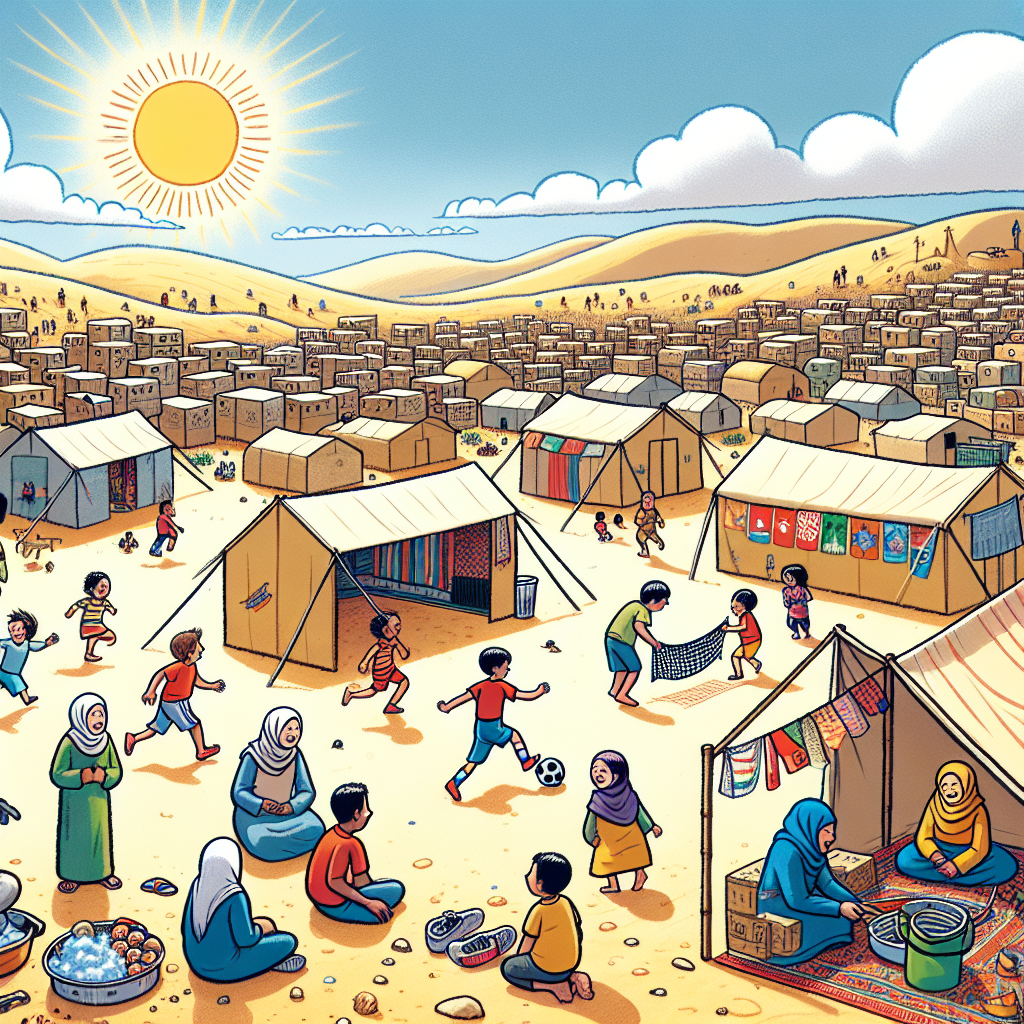Escalating Conflict in Gaza: Civilians in Dire Need Amid Intensified Fighting
Israeli forces bombarded multiple regions in Gaza, intensifying ground fighting in Rafah. Airstrikes killed several Palestinians, and dire conditions persist with food shortages and severe malnutrition. The offensive, a reaction to Hamas-led attacks on Israel, continues with no ceasefire in sight despite international mediation efforts.

Israeli forces pounded several areas across Gaza on Wednesday, and residents reported fierce fighting overnight in Rafah in the south of the Palestinian enclave. Residents said fighting intensified in the Tel Al-Sultan neighbourhood in western Rafah, where tanks were also trying to force their way north amid heavy clashes. The armed wings of Hamas and the Islamic Jihad said fighters attacked Israeli forces with anti-tank rockets and mortar bombs.
Since early May, ground fighting has focused on Rafah, abutting Egypt on Gaza's southern edge, where around half of the enclave's 2.3 million people had been sheltering after fleeing other areas. Most have since had to flee again. Later on Wednesday, an Israeli strike killed three Palestinians and wounded others near the northern Jabalia camp, one of the Gaza Strip's eight historic refugee camps, medics said.
Residents and Hamas media said the casualties were among a group of people who gathered outside a store to get an internet signal to communicate with relatives elsewhere in the enclave. In Nuseirat camp in the central Gaza Strip, tank shells struck an apartment, killing at least five people and wounding others, medics said.
The Israeli military had no immediate comment. Medics said earlier that two Palestinians were killed in one Israeli missile strike in Rafah.
The Israeli military said in a statement its forces killed a Hamas militant who had been involved in the smuggling of weapons through the border between Rafah and Egypt. It said jets struck dozens of militant targets in Rafah overnight, including fighters, military structures and tunnel shafts.
In the northern Gaza town of Beit Lahiya, an Israeli air strike destroyed a house, killing four Palestinians and wounding several others, medics said. Israel's ground and air campaign in Gaza was triggered when Hamas-led militants stormed into southern Israel on Oct. 7, killing around 1,200 people and seizing more than 250 hostages, according to Israeli tallies.
The Israeli offensive in retaliation has so far killed 37,658 people, of them 60 in the past 24 hours, the Gaza health ministry said on Tuesday, and has left the tiny, heavily built-up Gaza Strip in ruins. More than eight months into the war, international mediation backed by the U.S. has failed to yield a ceasefire agreement. Hamas says any deal must bring an end to the war and full Israeli withdrawal from Gaza, while Israel says it will accept only temporary pauses in fighting until Hamas is eradicated.
SEVERE FOOD SHORTAGE In the northern Gaza Strip, Palestinians complained of a severe lack of food and soaring prices, and health officials said thousands of children were suffering from malnutrition that has already killed at least 30 since Oct. 7.
"There is only flour and canned food, there is nothing else to eat, no vegetables, no meat, and no milk. I have lost over 25 kilos of my weight," said Abu Mustafa, who lives in Gaza City, with his family. Their house was struck in the past week by an Israeli tank, that destroyed most of the upper floor, forcing them to stay in the lower floor. "No safe places exist in Gaza anyway," he said.
"Apart from the bombing, there is another Israeli war taking place in northern Gaza, starvation. People meet in the street and many can't recognise one another because of weight loss and older looks," Abu Mustafa told Reuters via a chat app. Gaza remains at high risk of famine, though delivery of some aid has limited the projected spread of extreme hunger in northern areas, a global monitor said on Tuesday.
More than 495,000 people across the Gaza Strip are facing the most severe, or "catastrophic", level of food insecurity, according to an update from the Integrated Food Security Phase Classification (IPC) a global partnership used by the United Nations and aid agencies. That is down from a forecast of 1.1 million in the previous update three months ago, but is still more than one-fifth of Gaza's population. (Reporting and writing by Nidal al-Mughrabi; Editing by Alex Richardson)
(This story has not been edited by Devdiscourse staff and is auto-generated from a syndicated feed.)
- READ MORE ON:
- Gaza
- Israel
- conflict
- Hamas
- airstrikes
- malnutrition
- food shortage
- ceasefire
- mediations
- Rafah
ALSO READ
Renewed Violence Erupts in Gaza: Over 70 Dead in Airstrikes
Tragic Malnutrition Case Sparks Investigation in Bhiwandi
UNICEF Faces Urgent Funding Crisis, Threatening Child Malnutrition Aid
Escalation in Gaza: Israeli Airstrikes Target Hamas Leaders Amid Renewed Conflict
Escalation in Gaza: The Impact of Israeli Airstrikes on Hamas Leadership










